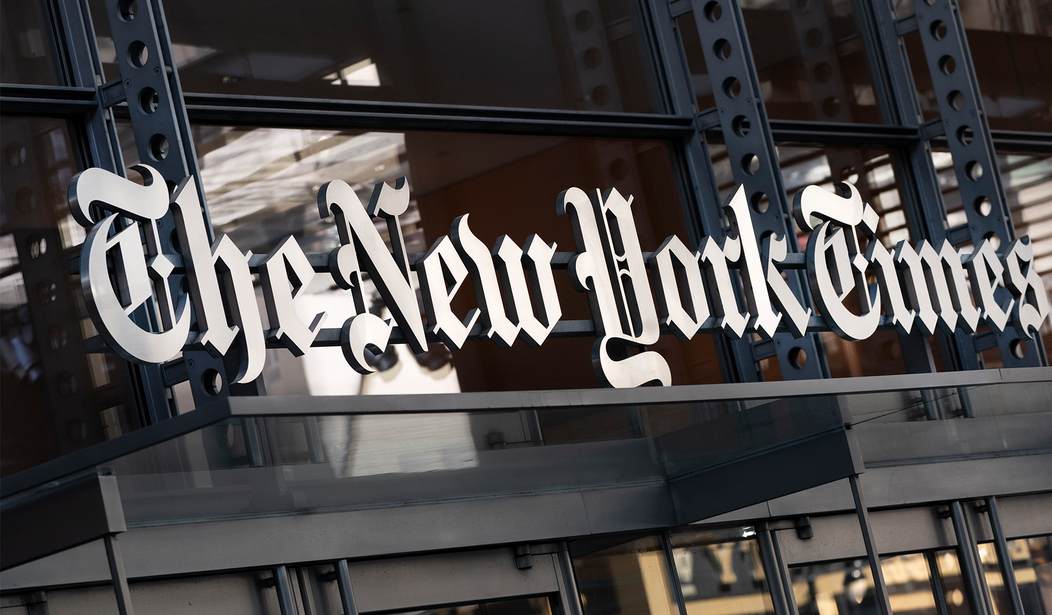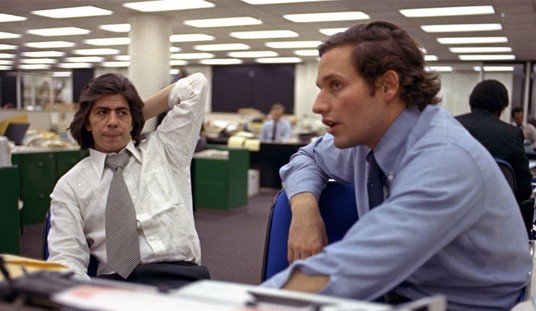The racism is coming from inside the house! That’s the conclusion of this internal survey of 1,000 NY Times employees carried out by a union representing them. The survey found that black and Latino employees were much less likely to receive strong job reviews than their white counterparts. And those reviews influence performance bonuses as well as future promotions. Staffers tell NPR the situation is demoralizing.
“Being Hispanic reduced the odds of receiving a high score by about 60%, and being Black cut the chances of high scores by nearly 50%,” says the report from the NewsGuild chapter representing employees of The New York Times. The study, shared before its release with NPR News, reflects data stretching back to 2018, when a new rating system was put in place.
While there were some fluctuation — on average, the performance of Black employees rose over the intervening years, while it declined for Latinos at the organization — white workers were consistently assessed as outperforming their peers…
“We started this analysis nearly two years ago from a place of honest inquiry,” says Ben Casselman, an economics reporter at the paper who participated in the study. “We wanted to know whether there were racial disparities. We hoped the answer would be no. Obviously that wasn’t the case.”
But it sounds like the management at the NY Times needs a refresher course in “White Fragility.” They are denying the findings and say their own analysis shows there is no problem at the paper:
Rhoades Ha says the paper is deep into what it calls a “multi-year action plan,” started in February 2021, to “make the paper a great place to work for everyone.”…
“The NewsGuild raised a similar issue last year about our ratings,” she adds. “We undertook our own expert analysis which gave us confidence that our ratings were not applied in a discriminatory way.”
All of this is happening at a time when the union is trying to negotiate a new contract with the paper. The last contract expired at the end of 2021 and NPR reports the negotiations toward a new one have been “uneasy.” Introducing the wedgiest of wedge issues into the negotiations seems designed to give the union a stronger hand. They are effectively calling the management racist in the modern sense of the word, i.e. the Times is not ensuring equal outcomes.
This one particular paragraph from the story stuck out to me for a couple of reasons:
Many journalists told the union of the bewilderment they felt at what they said were sharp gaps between glowing evaluations from editors and their numerical scores at the end of each year. Several noted that The Times had done investigations of other major corporations, such as Amazon and Starbucks, and said they wanted the paper to more effectively address concerns closer to home.
First, the implication is that minority employees are being unfairly downgraded in their numerical evaluations. That reminds me of the lawsuit brought against Harvard University which claimed that Asian applicants were routinely given lower “personality” scores, apparently as a way to balance out their academic excellence.
The report by the plaintiff’s expert witness, the Duke University economist Peter Arcidiacono, revealed that Harvard evaluated applicants on the extent to which they possessed the following traits: likability, helpfulness, courage, kindness, positive personality, people like to be around them, the person is widely respected. Asian-Americans, who had the highest scores in both the academic and extracurricular ratings, lagged far behind all other racial groups in the degree to which they received high ratings on the personality score.
“Asian-American applicants receive a 2 or better on the personal score more than 20% of the time only in the top academic index decile. By contrast, white applicants receive a 2 or better on the personal score more than 20% of the time in the top six deciles,” wrote Mr. Arcidiacono. “Hispanics receive such personal scores more than 20% of the time in the top seven deciles, and African Americans receive such scores more than 20% of the time in the top eight deciles.”…
Mr. Arcidiacono found that an otherwise identical applicant bearing an Asian-American male identity with a 25 percent chance of admission would have a 32 percent chance of admission if he were white, a 77 percent chance of admission if he were Hispanic, and a 95 percent chance of admission if he were black.
Harvard denied those personality scores showed any evidence of discrimination which implied that Asian applicants simply lacked the courage, kindness and charisma of applicants from other minority groups. To be clear, I’m not defending those scores, but Harvard did. Similarly, it sounds like the NY Times is making a lot of excuses for numbers that it would probably deem very problematic if they had been uncovered at any other major company. Maybe the Times is right about its own analysis of performance reviews but they must be aware how their denial sounds. If their own analysis is solid, why not leak it to some friendly reporters? As it stands this looks like an awkward fit with the commitment to racial equity the paper has already embraced.
Second, that paragraph above brings to mind a story that cuts in the opposite direction, i.e. not against the Times‘ management but against the union instigators trying to make this an issue. Back in June, Ryan Grim at the Intercept reported many left-wing advocacy groups were collapsing under the crushing weight of wokeness. Grim found that many organizations were essentially unable to focus on their stated priorities (the environment, abortion rights, etc.) because their employees had decided to focus on “internal reckonings” instead.
“So much energy has been devoted to the internal strife and internal bullshit that it’s had a real impact on the ability for groups to deliver,” said one organization leader who departed his position. “It’s been huge, particularly over the last year and a half or so, the ability for groups to focus on their mission, whether it’s reproductive justice, or jobs, or fighting climate change.”…
“My last nine months, I was spending 90 to 95 percent of my time on internal strife. Whereas [before] that would have been 25-30 percent tops,” the former executive director said. He added that the same portion of his deputies’ time was similarly spent on internal reckonings.
This survey of the NY Times sounds like evidence of the same change in focus, i.e. away from the actual work employees get paid to do in favor of more woke navel-gazing about the workplace. It makes sense the Times would be facing the same internal strife as other left-wing advocacy groups since it’s similarly composed of entirely left-wing employees. Indeed, this isn’t the first evidence we’ve seen that this is happening. It wasn’t long ago the Times fired their top science writer and one of their editors over concerns from the newsroom. The same sort of thing has been happening at the Washington Post.
The front lines of the cultural revolution run directly through these liberal institutions. And since the woke are really only interested in compliance with their views, this battle will continue until one side or the other is in complete control.








Join the conversation as a VIP Member